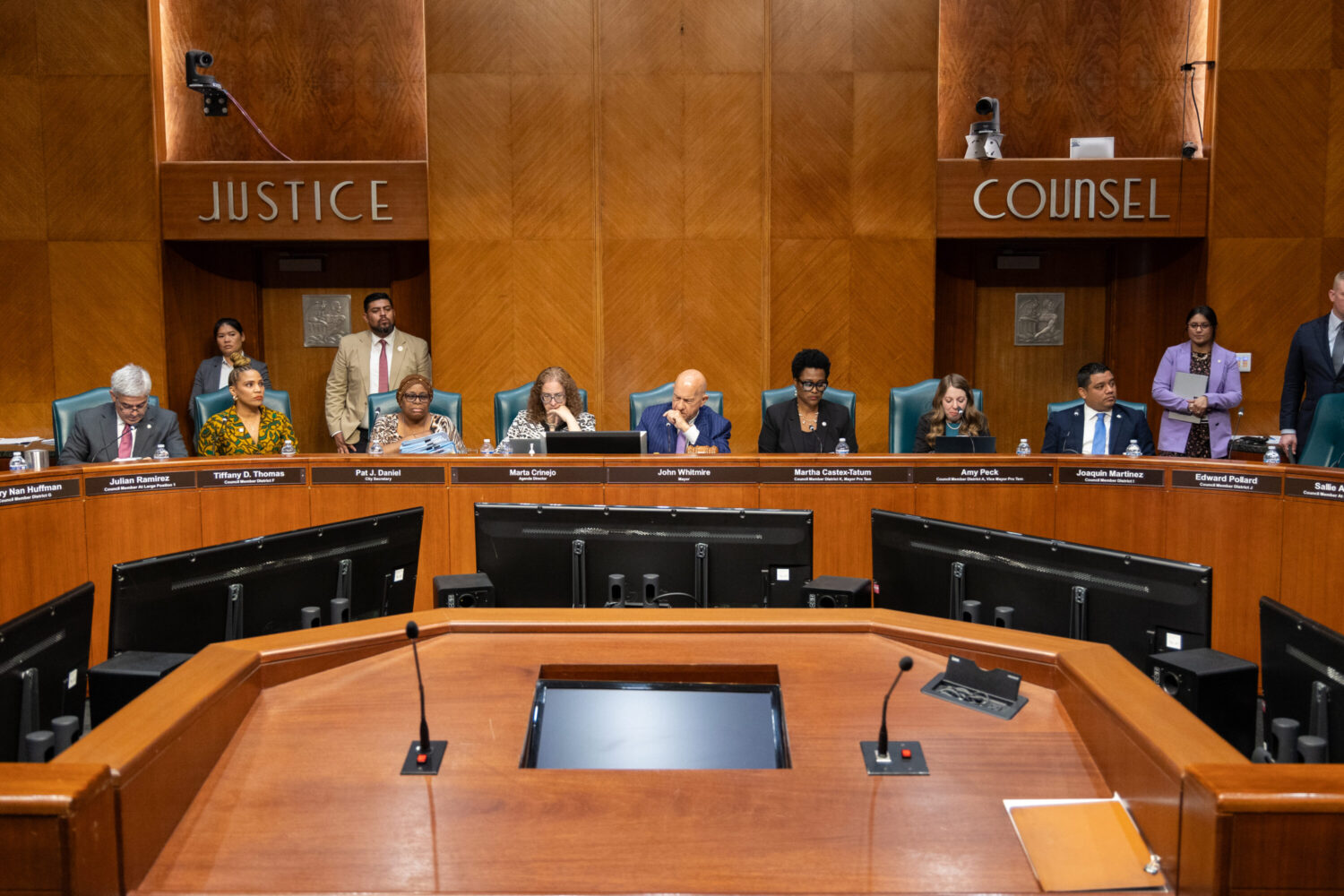Houston city officials will need to slash spending or dramatically raise revenue over the next year following a Texas Supreme Court decision on the city’s infrastructure spending.
The six-year court fight concerned the city’s spending on streets and drainage. A city charter amendment, approved by voters in 2010 and amended in 2018, required the city to allocate 11.8 cents of every $100 in property tax revenue towards infrastructure. Litigation by two Houston-based engineers argued the city was shortchanging the street and drainage fund. An appellate court agreed, and the state supreme court declined to hear the city’s appeal last week.
City Controller Chris Hollins called the decision “a real gut punch to the City of Houston financially” and pointed out the decision came on the heels of two credit ratings agencies changing their outlook on the city’s financial status from stable to negative.
“Now, with this ruling, that problem is compounded,” Hollins told City Council on Wednesday. “The judgment alone … balloons our annual deficit up beyond $300 million, and that’s unsustainable. That means simply that we’re going to run out of money.”
Hollins called for the creation of a “joint emergency task force” to address the looming shortfall.
“I’m concerned that we’re getting too close to a time when, without drastic cuts or new revenue, I won’t be able to certify the next budget, even if I want to,” he said. “I’m concerned about our ability to continue providing critical services in the face of our financial realities, and so we need a plan.”
According to City Attorney Arturo Michel, the city will likely need to move $100 million to the streets and drainage fund by the end of June. With the new expense, the city faces an approximately $330 million deficit in 2026.
Melissa Dubowski, director of the city’s finance department, said the city is tapping into $50 million from the METRO transit authority to offset the cost. She also pointed to a long-awaited audit of city services as an opportunity to save more money.
“That study has identified areas for efficiencies and opportunities and synergies amongst departments so that we can not only collaborate with other outside stakeholders but with each other better,” she said. “Even inside the city, we’re such a large organization, and so we needed that report to help us find those efficiencies, find duplication and figure out how we can still deliver the services that are important to the citizens but doing it in the most efficient way that we can, the best use of the tax dollars that we do have.”
The lawsuit was filed in 2019, during former mayor Slyester Turner’s first term in office. Despite being in office for the most recent budgeting and property tax discussions, Mayor John Whitmire blamed Turner’s administration for not resolving the litigation sooner.
“It’s not a surprise,” Whitmire said of the court decision. “In fact, I think most of us support the premise of the lawsuit that we need to spend more money on roads and drainage. The real disappointing point was and is that it was not addressed and negotiated when it was filed.”
Last year, Whitmire opposed raising the property tax rate to cover the cost of the derecho and Hurricane Beryl. The administration had multiple options to raise the property tax rate, including a maximum hike of more than 10%, which would have covered the disaster costs and brought in more than $100 million in revenue. Whitmire instead negotiated with Governor Greg Abbott to obtain about $32 million from the state for the city’s debris removal costs while keeping the tax rate flat.
Engineer Bob Jones, one of the plaintiffs in the drainage and street spending lawsuit, said the city’s tax rate is too low because the Turner and Whitmire administrations ignored the likely outcome of the litigation. Since 2010, when voters first approved the charter change, the property tax rate has fallen from 63 cents per $100 valuation to 52 cents.
“I didn’t get to make those decisions for the city, so realistically the tax rate is probably two or three cents lower than it should be had they handled things correctly,” Jones said.
Council Member Sallie Alcorn said the city has a “very healthy” fund balance, essentially the city’s savings account, which can be tapped to bridge the gap. The projected fund balance for the end of the current fiscal year is more than $360 million, according to the city’s finance department.
“For as long as I’ve been here, we’ve drawn upon the fund balance to bridge the gap — it’s not ideal, but we do have a healthy fund balance,” Alcorn said. “There’s not a Houstonian in sight that doesn’t think we need to spend $100 million or probably more on streets and drainage, so I think this will be money well spent, additional money well spent on streets, and it’s just a matter of making sure we can make the rest of the budget work.”

